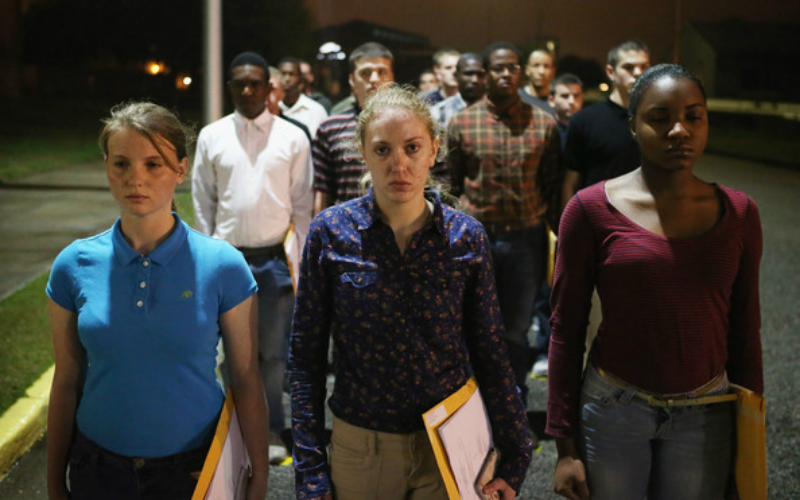“This is the most humiliating period of my life, as far as being an American,” says Gen. (Retired) Jerry Boykin, “to see what's going on here.”
What is going on, according to the State Department’s own admission, is the American government allowed thousands of U.S. citizens, and tens of thousands of Afghan allies, to remain behind when the Taliban swept across the countryside and marched into Kabul, the capital city, August 15.
As the terrible week comes to an end, and now that several hundred Americans have made their way to the airport through a sea of armed Taliban fighters, how many Americans remain in the country?
“I don’t know,” Pentagon spokesman John Kirby told reporters this week.
According to the Pentagon, approximately 7,000 people had been airlifted out of Kabul by mid-week, including 2,000 within 24 hours, but the public also learned American citizens numbered only 300 in that group.
The stomach-twisting debacle in Kabul comes after our nation has a history of rescuing its own, or at least attempting to do so. During World War II, the U.S. 3rd Army, under General George Patton, broke through German lines in Bastogne, Belgium, to end the Battle of the Bulge by linking up with hungry, freezing soldiers surrounded by the Germans.
In 1979, the plan to rescue American hostages in Iran was aborted by President Jimmy Carter after the U.S. Army operation fell apart after helicopter problems grounded the elite Delta Force. The secret mission, Operation Eagle Claw, included a young U.S. Army officer named Jerry Boykin who witnessed fellow soldiers die in the ill-fated rescue mission.
 The two-day street battle in Mogadishu, Somalia, in 1993, occurred after U.S. Army Rangers and Delta Force operators fought militiamen while trying to rescue helicopter crews shot down during a mission to capture a Somali leader.
The two-day street battle in Mogadishu, Somalia, in 1993, occurred after U.S. Army Rangers and Delta Force operators fought militiamen while trying to rescue helicopter crews shot down during a mission to capture a Somali leader.
The botched in-and-out mission and brave rescue that ensued is described in Mark Bowden's book Blackhawk Down, and by the film of the same name, and both book and film carried the same theme: Leave No Man Behind.
Delta Force at the time was commanded by Gen. Jerry Boykin.
This week, Americans learned the 82nd Airborne and U.S. Marines are ordered to remain at the Kabul airport, waiting for Americans to reach them, while British soldiers and French soldiers are leaving the airport, driving through the violent streets, and retrieving their own citizens from embassy properties and safe houses.
“Do you have the capability to go out and collect Americans?” a reporter asked Lloyd Austin, the Secretary of Defense, this week.

“We don't have the ability to go out,” Austin replied, “and collect up large numbers of people.”
"We bring every American home," U.S. Rep. Tony Gonzalez, a retired U.S. Navy officer, replied to Austin's comment. "Every [expletive] one of them, Mr. Secretary."
This week, even the left-wing media ripped President Biden and his administration for a bungled withdrawal from the war-torn nation. That criticism has only grown louder when it was learned those Americans have been advised by the State Dept. that they must reach the airport on their own and their safety is not guaranteed if they step out of a safe house into the streets of Kabul.
As if that you-are-on-your-own order was not bad enough, an agency within the State Dept. issued a bulletin August 14 announcing private U.S. citizens will be billed $2,000 for their evacuation flights out of the country, The Washington Examiner reported.
 “Repatriation flights are not free,” the bulletin reads, “and passengers will be required to sign a promissory loan agreement and may not be eligible to renew their U.S. passports until the loan is repaid.”
“Repatriation flights are not free,” the bulletin reads, “and passengers will be required to sign a promissory loan agreement and may not be eligible to renew their U.S. passports until the loan is repaid.”
According to news website The Drive, that State Dept. requirement is common for overseas missions, so it is not a new policy for the Kabul evacuation, but it adds insult to injury to frantic Americans and Afghans whose future is uncertain if they don’t make it safely to a gate at the airport.
Boykin, now 73 and a vice president at the Family Research Council, tells American Family News the failed withdrawal in Afghanistan comes from lack of planning, ignoring intelligence reports, and abandoning territory.
All of that, he says, is almost criminal.
“If they don't get all these Americans out, the President and everybody in the administration need to resign,” he says. “This is a scandalous, disgusting thing that we are in right now.”







